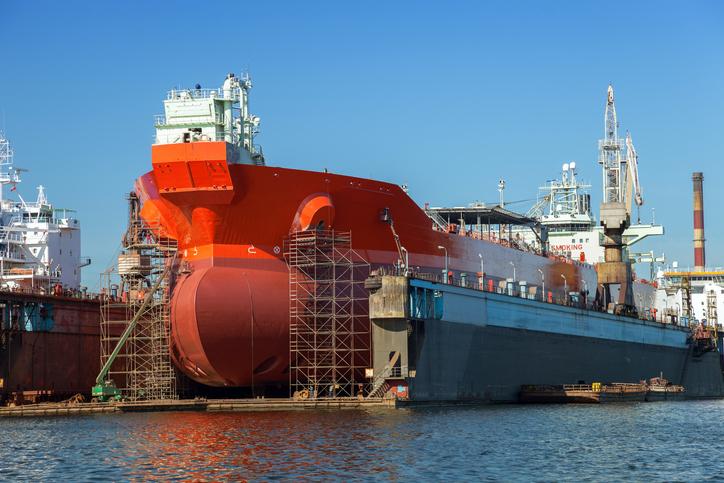Shipbuilding recruitment agency
- Certified specialists from Eastern Europe and the Baltic States
- German-speaking shipbuilders with references
- Legally compliant personnel placement
The Shipbuilding industry is an essential sector of the economy that relies on highly qualified specialists. In recent years, an acute shortage of skilled labour developed, which and challenges for shipyards and supplier companies. When welders missing, hulls remain unfinished and without pipeline constructors, no ship can get moving. Many companies are therefore increasingly relying on shipbuilding recruitment agencies and search for shipbuilders from abroad,to bridge the bottleneck.
Are you looking for shipbuilding and ship repair specialists? At Zeitarbeit International provide experienced specialists for the following areas:
We place experienced shipbuilders and specialists for the production, maintenance and modernisation of ships. In addition, we arrange labour force in shipbuilding who are familiar with specific shipyard techniques and processes.

Shipbuilders must be able to handle not only heavy machinery, but also hazardous substances and confined spaces. That is why there are numerous safety regulations that international skilled workers must fulfil before they are allowed to work in a shipyard in Germany. International skilled workers require certain certificates to get off to a flying start in Germany:
Only with these qualifications can skilled workers from abroad be deployed in German shipyards without any problems. Employers should therefore ensure from the outset that new employees have these certificates or invest specifically in appropriate training. WeZeitarbeit International place personnel from Eastern Europe and the Baltic States with the required certificates and professional experience.
Many shipbuilders from abroad are true experts — they have years of experience and know the international standards. We provide specialists from the following countries:
Poland - is known for its qualified shipyard workers with many years of experience in industrial shipbuilding.
Lithuania - offers well-trained specialists with high precision and technical expertise.
Romania - brings in specialists with extensive practical experience from naval and merchant ship projects.
and Bulgaria - has an established shipbuilding tradition and a reliable, skilled labour force.
Croatia - provides experienced shipbuilders with extensive knowledge of modern shipyard technologies.
The recruitment agency for shipbuilders from Eastern Europe is a real lifeline for many German shipyards. These skilled workers not only bring experience, but also top quality. So if you don't want to be left high and dry, rely on specialists who have shipbuilding in their blood.
Shipyard techniques are the foundation of modern shipbuilding, they determine how massive ocean liners are created from individual steel plates. Without these sophisticated methods, shipbuilding would be a chaotic jigsaw puzzle of metal and machines. We provide labour force in shipbuilding who have experience with specific shipyard techniques and processes. Basically, shipyard techniques can be divided into three main categories: block construction, nave and transept construction, and modular production.
Here, large ship parts, known as sections, are prefabricated and then assembled into a complete hull at the shipyard. This saves time and allows different components to be manufactured in parallel.
These methods determine whether a ship is built in longitudinal sections (parallel to the keel line) or transverse sections (perpendicular to the keel line). Transverse construction used to be standard, but has largely been replaced by longitudinal construction due to better structural stability.
The evolution of block construction, - where complete ship modules are manufactured, equipped and then assembled independently of each other. This process enables highly efficient series production, especially for container ships or naval vessels.
We provide certified specialists for shipbuilding from Eastern Europe and the Baltic States with high professional qualifications at the best price-performance ratio. We cover accommodation, meals, travel and separation allowances.
We only place shipbuilders from Eastern Europe with permits, impeccable references and certificates. Our contracts are legally compliant and safe.
Our specialists from abroad speak sufficient English or German, as they have already worked in Germany. They can be at the place of work within 7 days.


Zeitarbeit International Zeitarbeit International is your experienced partner for the placement of shipbuilding personnel from Eastern Europe. With a comprehensive network and many years of experience, we offer you qualified shipbuilding labour force that can be used quickly and easily. shipbuilding personnel from Eastern Europe. With a comprehensive network and many years of experience, we offer you qualified shipbuilding labour forcethat can be used quickly and easily.
Take advantage of our expertise in shipbuilding recruitment and benefit from efficient and legally compliant recruitment. We look forward to winning you as a customer!
The demand for shipbuilding skilled workers is often seasonal and project-based. Shipyards therefore have to work with flexible solutions to cover order peaks. Companies that rely solely on permanent employment risk idle periods during which highly qualified personnel are not utilised. At the same time, there is a sudden shortage of urgently needed specialists during intensive construction phases.
The shortage of skilled labour in shipbuilding is making shipyards sweat — but modern technologies are helping to design production processes more efficiently. Automation and digital planning are no longer dreams of the future, but essential tools to compensate for staff shortages and optimise processes.
One example is robot-assisted welding technology: high-precision industrial robots take over the millimetre-precise welding of huge ship components, drastically reducing errors and shortening construction time. 3D printing is revolutionising shipbuilding by enabling spare parts to be produced directly on site in just a few hours instead of several weeks. Particularly exciting is the use of augmented reality (AR) in construction: technicians can use AR glasses to take a virtual walk through the ship's hull, recognising design faults at an early stage, even before a single sheet of steel is installed.
These technologies not only save time and costs but also facilitate entry for new specialists. Thanks to digital assistance systems, beginners no longer have to decipher endless construction plans — a glance through the AR glasses is all it takes, and the future of shipbuilding is clearly in front of them.
The German shipbuilding has changed considerably in recent decades and with it the Employment situation and Order situation. According to a survey of works councils in September 2003 (Ludwig & Tholen), the industry was already facing challenges such as international competitive pressure, changed market conditions and a Increasing shortage of skilled labour. Many shipyards had to go through New technologies, which Specialisation in high-tech shipbuilding and Targeted personnel strategies in order to remain competitive in the long term.
Especially the Recruitment of qualified specialists played an important role even back then. While some German shipyards had difficulties, Finding new bloodothers are increasingly focussing on specialists from abroadto compensate for staff shortages. Today, the picture is similar: the industry urgently needs welders, pipeline constructors, and Engineers with shipbuilding experienceto meet the increasing requirements.
Modern requirements in shipbuilding place high demands on engineers; it is no longer just about technical expertise. In-depth knowledge of CAD software, 3D modelling and, increasingly, simulation processes for structural and flow analyses are in demand. Expertise in the fields of automation, robotics and smart manufacturing is becoming increasingly important.
Project management and interdisciplinary collaboration are also crucial, as engineers often work in cross-departmental and international teams. Today's shipbuilding engineers must therefore be tech-savvy all-rounders with a spirit of innovation.
The shipbuilding industry is struggling with a major problem: the lack of qualified specialists. Especially skilled workers for the shipbuilding industry from abroad are in demand to bridge bottlenecks and keep operations running. Without smart recruitment for shipyards and shipbuilding and the flexible use of temporary labour in shipbuilding, many companies face a shortage of skilled workers.
As many German shipyards have long been running on emergency power in terms of personnel, qualified labour from abroad is no longer an option, but a necessity. Welders, pipe fitters and engineers with shipbuilding experience are urgently needed. Those with internationally recognised certificates such as ISO 9606-1 or SCC have the best chances of being hired by the shipyards. However, in order to bring these specialists on board, a professional recruitment agency is needed that can place them quickly and efficiently — as this is the only way to keep the shipbuilding industry on course in the future.
Work permits, certificates and employment contracts must comply with German regulations.
Fast filling of vacancies, reduced costs and access to qualified specialists.
Depending on the requirements, placement can take place within a few weeks.
Request staff
